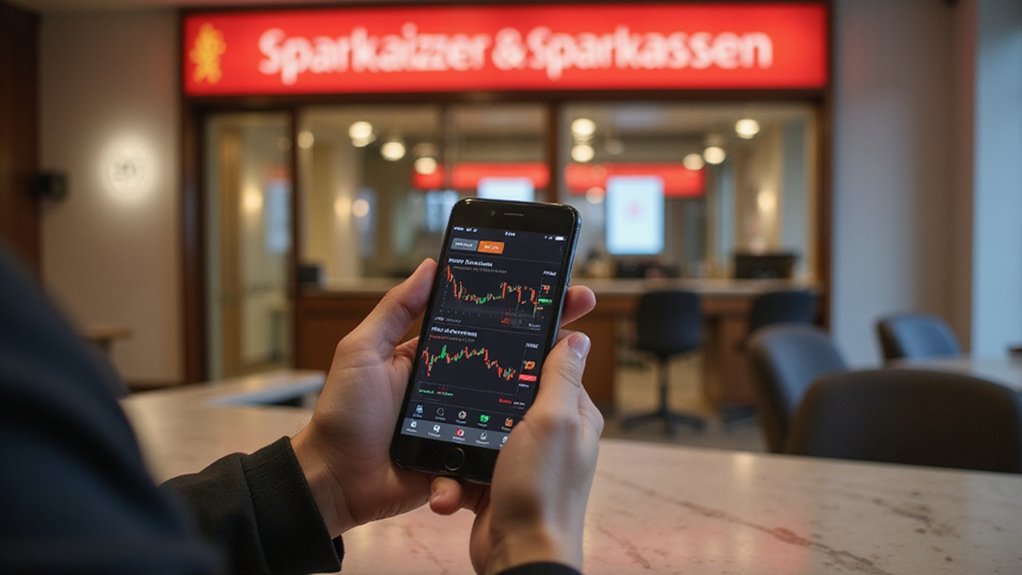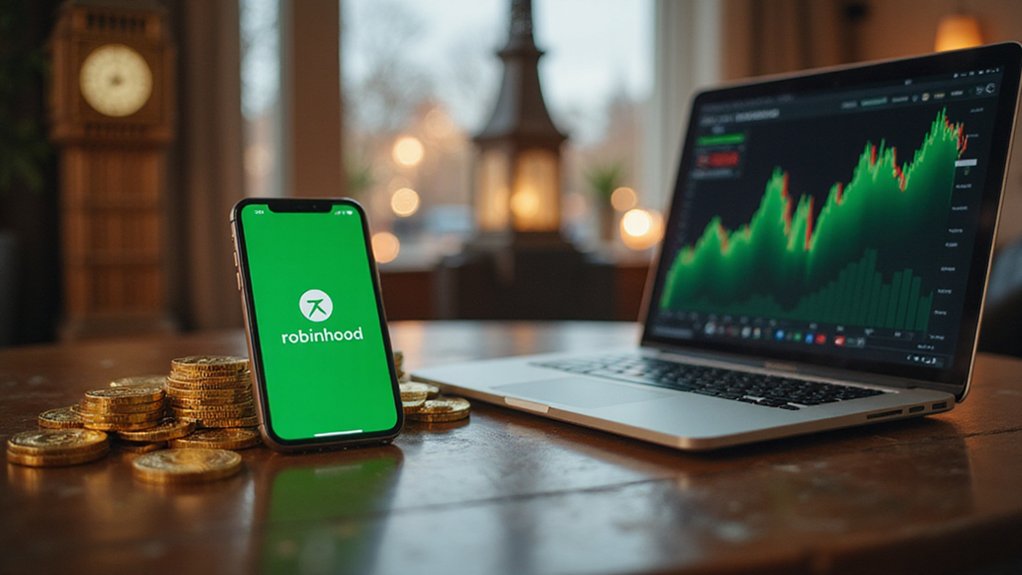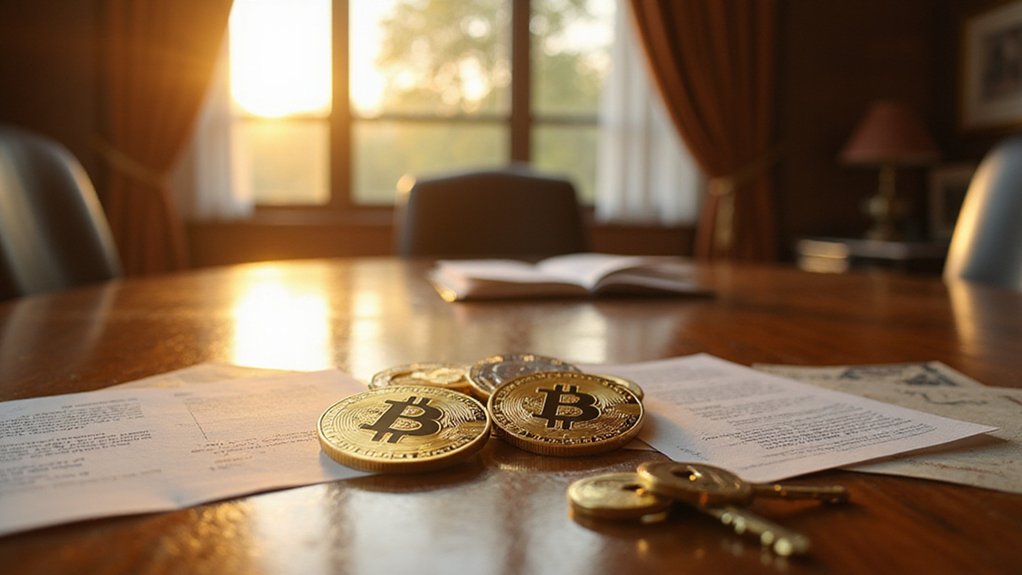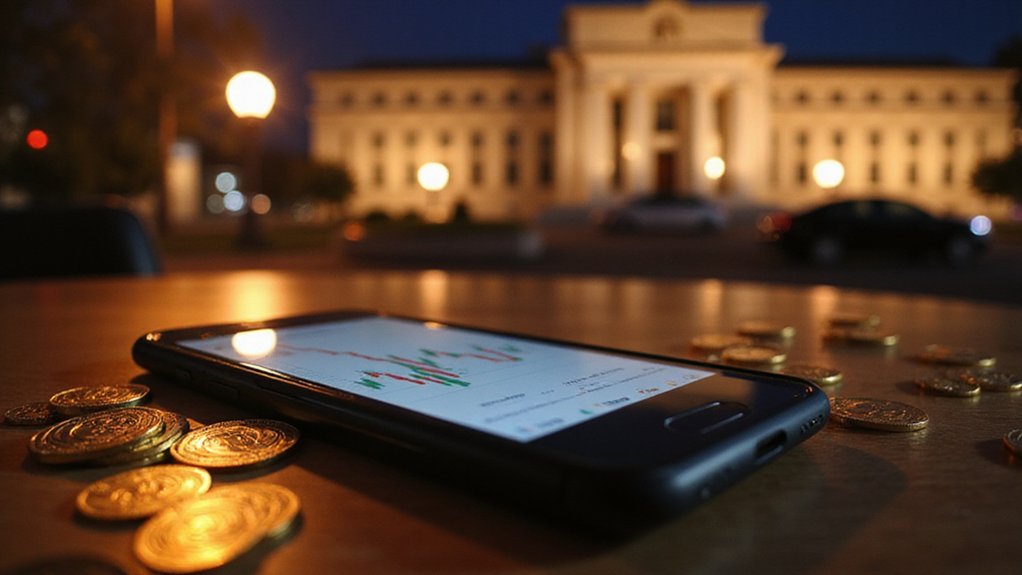Germany’s largest banking group has executed what might charitably be called a strategic pivot—though “capitulation to market forces” would be equally accurate—by announcing plans to integrate cryptocurrency trading into its mobile banking platform by 2026.
Market reality triumphed over institutional resistance as Germany’s banking behemoth bowed to customer demand for digital assets.
The Sparkassen’s transformation from crypto skeptic to digital asset enabler represents a fascinating study in institutional adaptation. After years of resistance that lasted through 2023, the banking collective has discovered what fintech platforms knew all along: customers want Bitcoin and Ethereum access, and they’re willing to take their business elsewhere to get it. The pressure from cooperative banks and digital challengers apparently proved too persuasive to ignore.
This strategic reversal owes much to the EU’s Markets in Crypto-Assets Regulation (MiCAR), which replaced regulatory ambiguity with clear compliance frameworks. Legal certainty, it seems, works wonders for institutional courage—suddenly what appeared impossibly risky becomes merely another product line.
Sparkassen will leverage DekaBank’s infrastructure to deliver these services, embedding crypto trading directly into existing mobile applications.
The bank’s approach reflects careful institutional hedging. Rather than offering advisory services or in-branch consultations, Sparkassen positions itself as a facilitator of self-directed trading. Customers receive volatility warnings and loss notifications, but portfolio management remains their responsibility—a convenient arrangement that transfers risk while capturing transaction revenue. This model stands in stark contrast to the emerging DeFi ecosystem, which eliminates traditional banking intermediaries entirely through blockchain-based smart contracts.
What makes this development particularly striking is its scale: 50 million customers stand to gain direct access to digital assets, representing one of Europe’s largest institutional crypto adoptions. The timing suggests less visionary leadership than pragmatic necessity; consumer demand finally overwhelmed institutional reluctance. Notably, the institution previously blocked crypto purchases for customers since 2015, making this reversal all the more dramatic.
The infrastructure promises seamless integration within existing banking ecosystems, complete with regulatory compliance and EU data protection standards. DekaBank handles operational and custody functions while Sparkassen maintains customer relationships—a division of labor that plays to respective strengths.
This move signals broader legitimization of digital assets within traditional finance. When Germany’s most conservative banking network embraces cryptocurrency trading, the transformation from fringe speculation to mainstream financial product appears complete.
Whether this represents genuine strategic innovation or merely inevitable adaptation to market realities remains an open question—though the distinction may ultimately prove academic for the millions of customers gaining access to digital asset markets.









